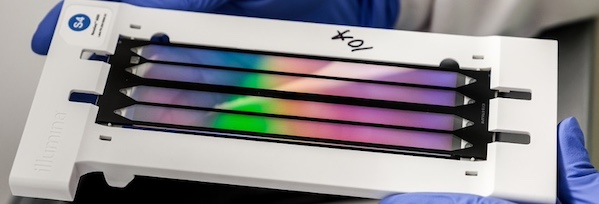Single Genetic Test to Accelerate Diagnoses for Rare Developmental Disorders
April 3, 2024
Source: drugdu
 436
436

Alterations in human DNA range from minor single nucleotide variations to substantial alterations involving the deletion or duplication of extensive DNA segments, known as copy number variations (CNVs). While CNVs contribute significantly to human genetic diversity and are often harmless, they can also lead to various neurodevelopmental disorders like Angelman syndrome, DiGeorge syndrome, and Williams-Beuren syndrome. Children suspected of having genetic conditions due to these significant DNA deletions or duplications typically undergo a lengthy diagnostic process that begins with microarray testing and may advance to more comprehensive genome-wide sequencing tests, such as exome or genome sequencing. Detecting CNVs in sequencing data and interpreting them can be challenging for clinical teams, which is why microarrays are commonly employed. Scientists have now created a single approach to identify these structural alterations using data from genome-wide exome sequencing assays.
The findings of the study by researchers from the Wellcome Sanger Institute (Cambridgeshire, UK) along with their collaborators suggest that a genetic test could be capable of replacing the existing dual-step diagnostic approach for identifying rare developmental disorders in children. This advancement could facilitate earlier diagnoses for affected families and save critical healthcare resources. The team reevaluated genetic information from approximately 10,000 families involved in the Deciphering Developmental Disorders study. They devised a single-assay technique that integrates four algorithms using machine learning to examine exome sequencing data.
The team demonstrated for the first time that exome sequencing, which only reads only protein-coding DNA, is equally or more accurate than standard clinical microarrays at identifying disease-causing structural genetic variations. Upon comparing this innovative single-assay method against the usual clinical methods, the researchers found it could accurately identify 305 significant pathogenic mutations, including 91 that were undetectable by standard clinical microarrays previously. These results indicate the potential of this method to replace existing diagnostic procedures, offering quicker, more accurate detection of rare genetic diseases, and potentially leading to significant savings for healthcare systems. However, the implementation of this approach may require additional training for specialists to efficiently generate and analyze the data, according to the researchers.
“We are still learning how large-scale genetic variations impact human health. This study proves that with the right computational methods, a single test can accurately detect them,” said Professor Matthew Hurles, Director of the Wellcome Sanger Institute and senior author of the study.
Source:
https://www.labmedica.com/molecular-diagnostics/articles/294800717/single-genetic-test-to-accelerate-diagnoses-for-rare-developmental-disorders.html
Read more on
- Gusekirumab Injection Accepted by CDE, Multiple Pipelines Advancing Simultaneously March 4, 2026
- Yifan Pharmaceutical’s teriparatide injection has been accepted by the CDE (Center for Drug Evaluation), adding a new domestic player to the osteoporosis treatment field March 4, 2026
- //news.yaozh.com/archive/47318.html PD-1 sales surge March 4, 2026
- A major breakthrough! Roche’s oral BTK inhibitor achieves its third Phase III clinical trial victory, a game-changer in the multi-billion dollar MS (manufactured pharmaceuticals) market. March 4, 2026
- GB19 Injection Approved for Clinical Trials of Cutaneous Lupus Erythematosus March 4, 2026
your submission has already been received.
OK
Subscribe
Please enter a valid Email address!
Submit
The most relevant industry news & insight will be sent to you every two weeks.



